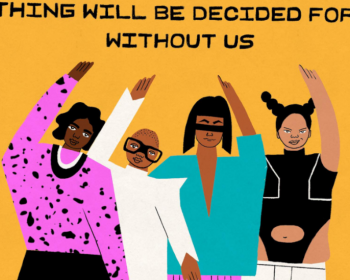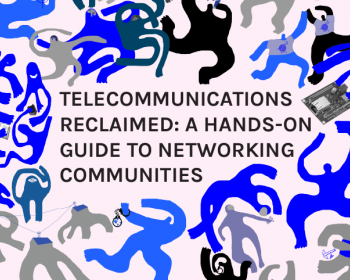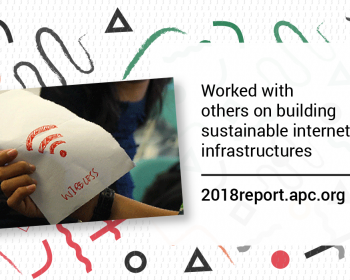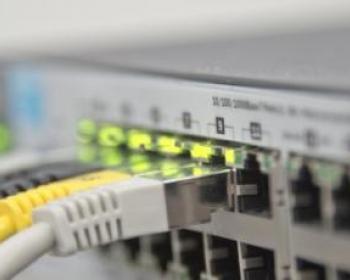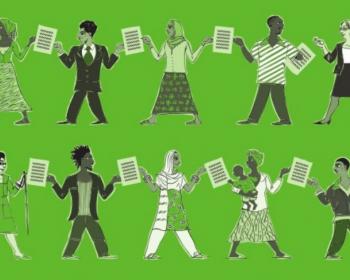infrastructure
Feminist activists have played an important role in pointing out how the internet rights of those who are marginalised on account of gender, sexuality and gender expression are particularly precarious. But where is the funding for feminist work on technology and infrastructure?
This book is a guide on how to build a community network, a shared local telecommunications infrastructure, managed as a commons, to access the internet and other digital communications services. It was written collectively by a group of community network pioneers in Europe, activists and researchers during a writing residency week held in Vic, Catalonia in October 2018.
Civil society actors, women’s rights and sexual rights advocates have the capacity to confidently use the internet and ICTs, and engage critically in their development. This is a compendium of the highlights from APC's Annual Report for 2018.
Access to the internet for local communities has been a challenge for decades for those working to achieve equal rights for all people. Two milestones on this journey have been telecentres and community networks, the focus of this article.
At the Internet Freedom Festival, Jac sm Kee interviewed four amazing feminists from Latin America.
The purpose of this paper is to discuss the issues surrounding strategies for cooperation with the technical community in the effort to advance economic, social and cultural rights (ESCRs) on the Internet. The paper describes the framework for the analysis of the functional environment of the technical community. It later outlines some opportunities for making progress.
How do we ensure access to the internet is a human right enjoyed by all? This is one of the critical questions asked by GISWatch 2008, which highlights the importance of people’s access to ICT infrastructure, where and how countries are getting it right or wrong, and what can be done about it.


